Mental Health Therapy in Michigan
Therapists in Michigan
Filters
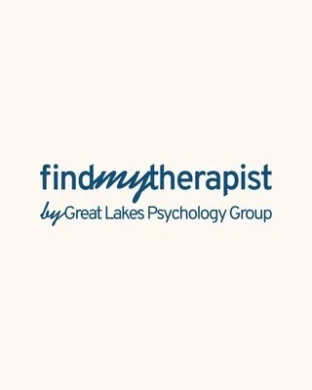
Claire Benton
Claire Benton is a Counselor, providing both online and in-person sessions. Services include therapy for children (0 - 10), teen & preteen (11 - 18), adults (18+), and seniors (65+). Claire is in-network with insurance providers including Aetna, Behavioral Health Systems, and Blue Care Network. They accept American Express, Cash, and Check, and may offer sliding scale payment options to help with the cost of treatment. Get in touch to see how therapy can fit your goals and schedule.
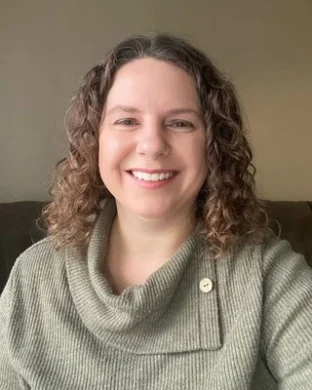
Sarah Smithers
Sarah Smithers is a Clinical Social Worker/therapist, providing both online and in-person sessions. Services include therapy for adults (18+). Sarah has experience working with Bisexual People, Gay People, People with Immunological Disorders, Lesbians, Nonbinary People, Queer People, Racial Justice Advocates, Single Mothers, and Transgender People. Sarah is in-network with insurance providers including Aetna, Blue Care Network, and BlueCross BlueShield. They accept American Express, Cash, and Check. Get in touch to see how therapy can fit your goals and schedule.
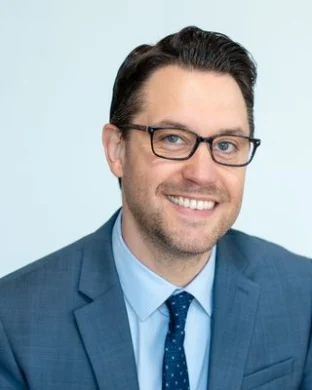
Michael McKiddy
Michael McKiddy is a Licensed Professional Counselor, providing both online and in-person sessions. Services include therapy for teen & preteen (11 - 18) and adults (18+). Michael is in-network with insurance providers including Aetna, BlueCross BlueShield, and Carelon Behavioral Health. They accept American Express, Cash, and Check, and may offer sliding scale payment options to help with the cost of treatment. Get in touch to see how therapy can fit your goals and schedule.
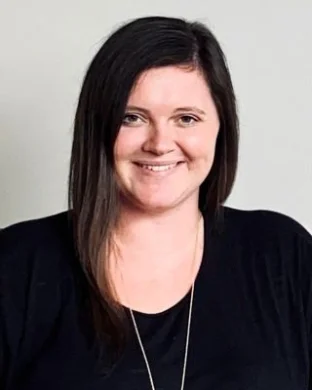
Macey Garrido
Macey Garrido is a Clinical Social Worker/therapist, providing both online and in-person sessions. Services include therapy for teen & preteen (11 - 18) and adults (18+). Macey is in-network with insurance providers including Aetna, ASR Health Benefits, and Blue Care Network. They accept American Express, Cash, and Discover. Get in touch to see how therapy can fit your goals and schedule.
April Mendyka
April Mendyka is a Licensed Professional Counselor, providing online sessions. Services include therapy for adults (18+). They accept American Express, Discover, and HSA. Get in touch to see how therapy can fit your goals and schedule.
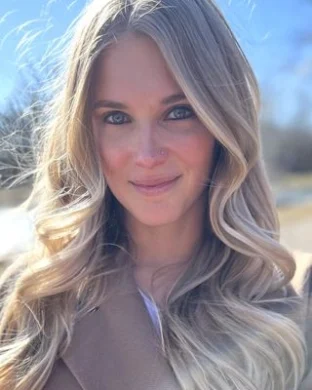
Samantha Pedri
Samantha Pedri is a Clinical Social Worker/therapist, providing both online and in-person sessions. Services include therapy for teen & preteen (11 - 18) and adults (18+). Samantha has experience working with Bisexual People, Gay People, People Living with HIV/AIDS, Intersex People, Lesbians, Little People, Nonbinary People, Queer People, Racial Justice Advocates, Sex Workers, and Transgender People. Samantha is in-network with insurance providers including Aetna, ASR Health Benefits, and Blue Care Network. They accept American Express, Cash, and Check. Get in touch to see how therapy can fit your goals and schedule.
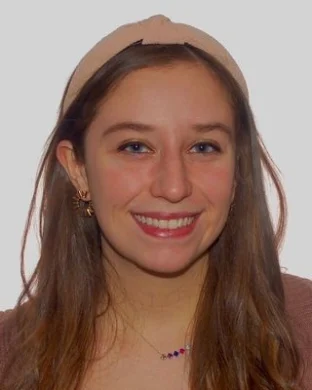
Madelyn Marchiori
Madelyn Marchiori is a Limited Licensed Psychologist, providing both online and in-person sessions. They accept Bank transfer, American Express, and Check. Get in touch to see how therapy can fit your goals and schedule.
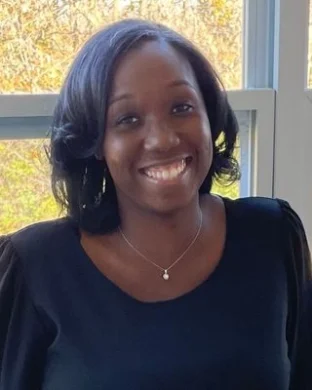
Paula Leapheart
Paula Leapheart is a Licensed Professional Counselor, providing both online and in-person sessions. Services include therapy for teen & preteen (11 - 18) and adults (18+). They also have experience working with Christian clients and provide faith-sensitive care while welcoming people of all backgrounds. Paula is in-network with insurance providers including Blue Care Network and BlueCross BlueShield. They accept American Express, HSA, and Mastercard, and may offer sliding scale payment options to help with the cost of treatment. Get in touch to see how therapy can fit your goals and schedule.
Masuma Jinnat
Masuma Jinnat is a Clinical Social Worker/therapist, providing online sessions. Services include therapy for teen & preteen (11 - 18), adults (18+), and seniors (65+). Masuma is in-network with insurance providers including Aetna, BlueCross BlueShield, and Cigna. They accept American Express, Cash, and Check. Get in touch to see how therapy can fit your goals and schedule.
Nate Apel
Nate Apel is a Licensed Professional Counselor, providing both online and in-person sessions. Services include therapy for children (0 - 10), teen & preteen (11 - 18), adults (18+), and seniors (65+). They also have experience working with Christian clients and provide faith-sensitive care while welcoming people of all backgrounds. Nate is in-network with insurance providers including Aetna, ASR Health Benefits, and Blue Care Network. They accept Cash, Check, and HSA. Get in touch to see how therapy can fit your goals and schedule.
Mental Health in Michigan
If you’re a high schooler in Michigan, chances are one of your peers is depressed or has thought about suicide. According to the state’s Department of Health and Human Services, over 40% of Michigan teens have experienced depression and 9% of adolescents have tried to take their own lives, sometimes more than once. Over 60% of children have indicated they did not receive mental health services.
Overall, Michigan’s health rankings are higher than average when compared to other states, but there are signs of increasing mental health disorders among the population.
Adults who’ve experienced major depression have slowly increased from 6.8% in 2015 to 8.4% in 2023, and one in five adults have reported having a mental health disorder. For those living in rural areas, the disparity is even greater. The growing trends in mental health issues continue to be a concern for legislators, medical professionals, and the public.
Free Mental Health Resources in Michigan
Find A Therapist By City
- Bad Axe
- Bath
- Battle Creek
- Bay City
- Belding
- Belleville
- Benton Harbor
- Benzonia
- Berkley
- Berrien Springs
- Beverly Hills
- Big Rapids
- Bingham Farms
- Birch Run
- Birmingham
- Bloomfield
- Bloomfield Hills
- Bloomfield Township
- Boyne City
- Bridgeport
- Brighton
- Brooklyn
- Brownstown
- Brownstown Township
- Buchanan
- Burton
- Byron Center
- Cadillac
- Caledonia
- Canton
- Canton Township
- Caro
- Cedar Springs
- Cement City
- Central Lake
- Charlevoix
- Charlotte
- Cheboygan
- Chelsea
- Chesterfield
- City of the Village of Clarkston
- Clarkston
- Clawson
- Clay Township
- Clinton Township
- Clio
- Commerce Township
- Comstock Park
- Crystal
- Curtis
- Eagle
- East Grand Rapids
- East Lansing
- East Leroy
- East Tawas
- Eastpointe
- Eaton Rapids
- Elk Rapids
- Escanaba
- Farmington
- Farmington Hills
- Fenton
- Ferndale
- Flint
- Flint Township
- Flushing
- Fowlerville
- Frankfort
- Franklin
- Frederic
- Freeland
- Fremont
- Garden City
- Gaylord
- Georgetown Township
- Gladwin
- Gobles
- Grand Blanc
- Grand Haven
- Grand Junction
- Grand Ledge
- Grand Rapids
- Grandville
- Greenbush
- Greenville
- Gregory
- Grosse Ile
- Grosse Ile Township
- Grosse Pointe
- Grosse Pointe Farms
- Grosse Pointe Park
- Grosse Pointe Woods
- Hamburg
- Hamilton
- Hancock
- Harper Woods
- Harrison Township
- Hartland
- Haslett
- Hastings
- Hazel Park
- Highland
- Hillsdale
- Holland
- Holly
- Holt
- Hopkins
- Houghton
- Houghton Lake
- Howell
- Hudsonville
- Huntington Woods
- Lake City
- Lake Isabella
- Lake Odessa
- Lake Orion
- Lambertville
- Lansing
- Lapeer
- Lathrup Village
- Lenox
- Lincoln Park
- Linden
- Livonia
- Lowell
- Ludington
- Macomb
- Manistee
- Maple City
- Marine City
- Marlette
- Marne
- Marquette
- Marshall
- Marysville
- Mason
- Memphis
- Metamora
- Middleville
- Midland
- Milan
- Milford
- Millington
- Monroe
- Mount Clemens
- Mount Morris
- Mount Pleasant
- Muskegon
- Muskegon Heights
- Redford
- Redford Township
- Richland
- Riverview
- Rochester
- Rochester Hills
- Rock
- Rockford
- Romeo
- Rose City
- Roseville
- Royal Oak
- Saginaw
- Saint Clair
- Saint Clair Shores
- Saint Johns
- Saint Joseph
- Saline
- Sandusky
- Saranac
- Sault Sainte Marie
- Shelby Township
- South Haven
- South Lyon
- Southfield
- Southgate
- Sparta
- Spring Arbor
- Spring Lake
- Springfield
- Stanton
- Sterling Heights
- Stevensville
- Swartz Creek